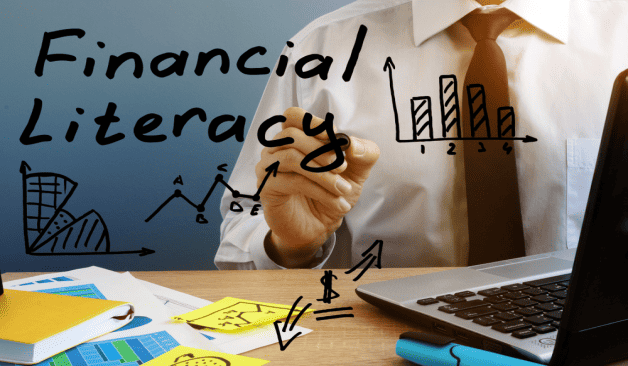
Signs that you are financially literate
Many assume they will make the right decisions in their investing journey because they consider themselves financially literate. However, most people are living in delusion and hence make mistakes on their way. Everyone first needs to evaluate whether they are financially literate or not. For that, you need to understand what it means.
Today, we will explain in great detail - financial literacy and signs to help you evaluate yourself. Let us get started.
What is financial literacy?
Financial literacy refers to the knowledge, skills, and understanding of various financial concepts and tools that enable you to make informed and effective decisions regarding your personal finances. It encompasses a broad range of topics, such as budgeting, saving, investing, borrowing, insurance, taxes, and retirement planning.
Why is financial literacy important?
Financial literacy is crucial in today's complex and interconnected world, as it empowers you to manage your money wisely, avoid financial pitfalls, and achieve financial goals. It involves understanding key financial principles and concepts, such as budgeting, compound interest, risk and return, inflation, and diversification.
With financial literacy, you can develop essential skills to create and maintain a budget, track your income and expenses, and make informed decisions about spending and saving. It helps you become aware of financial risks and rewards, enabling you to evaluate different investment options and make prudent choices based on financial objectives and risk tolerance.
Financial literacy equips you with the ability to navigate the financial system effectively. It involves understanding banking services, credit cards, loans, and mortgages, enabling you to make sound borrowing decisions, compare financial products, and avoid falling into debt traps. It also helps you comprehend and evaluate the implications of financial contracts, such as insurance policies and investment agreements.
Has your view changed? Do you think you are financially literate? Let us move to the signs.
Six signs to show you are on the right track
Here are the top six signs to help you evaluate your status:
Track cashflows: One of the crucial aspects of financial planning is budgeting, and every literate person takes care of budgeting. It mainly involves keeping track of income and expenses to ensure that you never get into negative cash flow situations. It is not only about tracking but also about getting results. A financially literate person would track and also have surplus funds available all the time (including emergency funds). Being able to manage earnings and spending is one of the most vital financial skills.
You have a debt management system in place: You have a plan in place to manage and pay off any debts. Financial literacy involves understanding the consequences of taking on too much debt. By managing debt wisely, you avoid accumulating excessive debt, which can lead to financial stress and negatively impact your overall financial well-being. If you have an existing debt, you responsibly manage it. It means you make timely payments and maintain a good credit history. Financially literate individuals understand the importance of maintaining good credit.
Saving and investing: You prioritize saving a portion of your income regularly. Financially literate people have clear goals and know exactly how much they should save and invest to reach them. You have a good understanding of different investment options and make informed decisions based on your risk tolerance and financial goals.
Understanding financial products: You have a good knowledge of financial products such as bank accounts, credit cards, insurance policies, and retirement plans. You can compare and evaluate different options to make the best choice for your needs. If you can do all of it by yourself (with all the other points), you can put yourself in the category of being financially literate.
You understand your financial strengths and weaknesses: By identifying your strengths, such as having a steady income, a well-managed budget, or a good credit score, you can leverage these advantages to build a strong financial foundation. On the other hand, recognizing your weaknesses, such as excessive debt, poor saving habits, or a lack of investment knowledge, enables you to address these areas and take the necessary steps to improve. Assessing your financial strengths and weaknesses allows you to make informed decisions about saving, budgeting, investing, and managing debt, leading to a more secure and prosperous financial future.
Seeking financial education and teaching others: You actively seek resources, courses, or professional advice to enhance your financial knowledge. You stay informed about financial news and trends that can affect your finances. Also, you are comfortable discussing financial topics with others and can explain basic financial concepts to friends or family members who seek your help.
Before you go
Which side are you on? You don't need to feel disheartened even if you don't exhibit all these signs, as it doesn't necessarily mean you are financially illiterate.
If you are financially literate, congratulations. However, please note that financial literacy is an ongoing process, and the key is to continuously educate yourself and improve your understanding of personal finance to make better financial choices.










